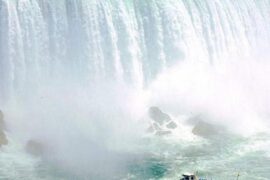Embracing Whakapapa: The Beauty of M?ori Names – A Guide for Parents
Kia ora, dear parents! Are you looking for a name that is not only unique but also rich in culture and meaning? Congratulations on starting this exciting journey into the world of M?ori names! Whether you have M?ori heritage, a connection to Aotearoa (New Zealand), or simply an appreciation for beautiful languages and cultures, this guide is here to walk you through the enchanting path of naming your little one in the M?ori tradition. ?
What’s in a M?ori Name?
M?ori names, or ingoa M?ori, are more than just a collection of sounds. They are steeped in tradition, history, and a deep connection to ancestry (whakapapa). In the M?ori culture, names are thought to have mana (spiritual power) and are carefully chosen to reflect the child’s identity, lineage, and the hopes of their family.
Understanding M?ori Names
Before we dive into the names themselves, it’s important to understand some key concepts:
- Whakapapa – This refers to genealogy or lineage, which is a cornerstone in M?ori society. A name can encode information about a person’s ancestors and tribal affiliations.
- Mana – Names in M?ori culture can convey the prestige of a person or family.
- Tapu – Some names are considered sacred and carry restrictions on their use.
- Te Reo M?ori – The M?ori language is central to understanding the pronunciation and meaning of M?ori names. Take the time to learn correct pronunciation to honor the culture and your child’s name.
Now, let’s take a step into the beautiful tradition of M?ori names…
The Importance of Pronunciation in M?ori Names
One of the first and most critical steps in choosing a M?ori name is making sure you can pronounce it correctly. The sounds used in Te Reo M?ori are specific and meaningful, and it’s paramount to honor the language by speaking it as it’s intended.
Sounds of Te Reo M?ori:
Te Reo has 15 distinct sounds, including 5 vowels (pronounced as in Spanish or Italian) and 10 consonants. Let’s go through some basic pronunciation tips:
- Vowels can be short or long, and the length can change the meaning of a word.
- ‘Wh’ is often pronounced as a soft ‘f’.
- The ‘ng’ sound is similar to the end of the English word ‘singing,’ not as in ‘finger’.
- ‘R’ is rolled slightly, akin to the Spanish ‘r’.
- Macrons (e.g., ?) signify vowel length; for example, ‘m?’ (white or clear) vs. ‘ma’ (normal).
With an understanding of pronunciation, choosing a M?ori name becomes a more thoughtful and respectful process.
Common Themes in M?ori Names
M?ori names often draw inspiration from nature, qualities or virtues, and historical or mythological figures. We’ll explore some of these themes that might resonate with you for your pepe (baby).
Nature-Inspired Names
Nature is a huge influence in M?ori culture, with many names reflecting the beauty of the land, sky, and sea. Examples include:
- Aroha (love, compassion, or affection related to the heart) – reflecting a deep connection to the emotional landscape.
- M?nuka (a type of tree) – symbolizing resilience and healing, as the M?nuka tree has medicinal properties.
- Ira (life principle or vital essence) – a name embodying the essence of life.
Such names are not only beautiful but also serve as lifelong reminders of the aspects of nature that may be significant to your family.

Embracing Whakapapa: The Beauty of M?ori Names – A Guide for Parents
Kia ora, lovely parents! Are you on the quest for a name that carries the essence of uniqueness, culture, and profound meaning? We’re thrilled you’re here to explore the wonderful world of M?ori names! Culturally rich and beautifully crafted, these names are a testament to the heritage of Aotearoa (New Zealand). This guide will support you in choosing a M?ori name with both significance and heart for your precious one. ?
Five Key Considerations for M?ori Names
Embarking on this naming journey, it’s essential to understand certain elements that play a pivotal role in M?ori culture:
- Cultural Significance: Each M?ori name is a celebration of the child’s heritage, potential, and the unique story they are to live. Understanding the cultural significance and backstory of the name you choose will ensure a strong, meaningful connection.
- Naming Traditions: Traditionally, names could be passed down, derived from ancestors or events, or inspired by attributes hoped for in the child’s character. Getting familiar with these traditions can inform your choice and pay homage to the rich M?ori legacy.
- Consultation with Elders: Engaging with M?ori elders or respected members of the community can provide wisdom and ensure the name chosen is appropriate and blessed within the cultural context.
- Pronunciation Practice: Mastery of the correct pronunciation shows respect for the language and culture, so taking the time to learn the nuances of Te Reo M?ori pronunciation is crucial.
- Consider the Future: Think of how the name will serve your child in various stages of their life – as a child, a teen, and an adult. The name should fit them at every step, embodying its meaning and their own life journey.
Ready to dive deeper? Let’s delve into the significance of names and how they hold fast to M?ori culture.
The Cultural Tapestry of M?ori Naming
Naming in M?ori culture is a profound act, woven into the fabric of identity and family history. It carries with it an inherent tribute to the ancestors and the land, recognizing that the child is a continuation of a story that spans generations.
Whakapapa (ancestry) is honored through names, allowing M?ori children to navigate their heritage and connect with their cultural roots securely. Such names often inspire, guide, and anchor individuals throughout their lives.
M?ori Names through Historical Lenses
Historical events or admired ancestors often inspire M?ori names, serving as a bridge between past and present. They can also act as vessels carrying the legacy and achievements of those who’ve come before, encouraging the new generation to embody these qualities.
The Symbology and Connection to Nature in M?ori Names
Nature is deeply ingrained in M?ori cosmology, and this is reflected in the names that resonate with the physical and spiritual world. Each name tells a story, be it through the land’s topology, celestial bodies, or the flora and fauna that are indigenous to New Zealand.
Choosing a Name with Natural Essence
When you choose a M?ori name, you’re not just selecting a term; you’re embracing a piece of the natural environment and its corresponding narratives. This can instill a love and respect for nature in your child’s values and identity.
Names like Moana (ocean), T?whiri (wind), and Kauri (a native tree) are examples of M?ori names that encapsulate the beauty and power of the natural world. Each name carries its melody, as well as a deep ecological connection that can guide a child’s appreciation for their environment.
Respecting the Sacred: M?ori Names and Spirituality
In M?ori culture, there is an inherent respect for the sacredness of names. By honoring this sacredness, you are not only choosing a name but also affirming your child’s spiritual connection to their ancestors, the land, and the wider universe. Recognizing the tapu (sacredness) of certain names is also important, so that the name given does not overstep cultural boundaries.
Respecting tapu ensures that the name carries the appropriate energy and respect required, paving the way for your child’s spiritual well-being.
Final Thought: The Name as a Gift
In conclusion, a M?ori name is a koha (gift) that carries weight and wonder. It’s a legacy, an honor, and a resonance of the child’s identity. By choosing a name from the M?ori tradition, you gift your child a narrative rich with culture, strength, and connection. As they grow and weave their own story into the fabric of their whakapapa, their name will remain a guiding force – a beacon of their culture and their own unique path.
See more great Things to Do with Kids in New Zealand here. For more information see here
Disclaimer
The articles available via our website provide general information only and we strongly urge readers to exercise caution and conduct their own thorough research and fact-checking. The information presented should not be taken as absolute truth, and, to the maximum extent permitted by law, we will not be held liable for any inaccuracies or errors in the content. It is essential for individuals to independently verify and validate the information before making any decisions or taking any actions based on the articles.




